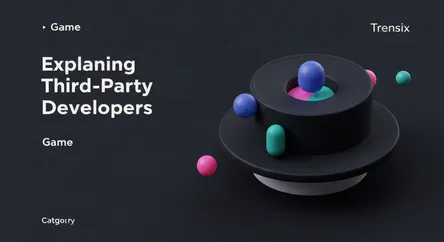Game
Explaining Third-Party Developers

Discover what third-party developers are in the gaming industry and how these independent studios create titles for major consoles like PlayStation and Xbox.
What is it?
In the video game industry, a 'third-party' developer or publisher is a company that is independent of any console manufacturer. Unlike first-party studios, which are owned by platform holders like Sony (Naughty Dog) or Microsoft (343 Industries), third-party studios are free to create games for multiple competing platforms. Major examples include Electronic Arts (EA), Ubisoft, and Activision Blizzard, who release blockbuster franchises across PlayStation, Xbox, Nintendo, and PC. This category also includes thousands of smaller independent or 'indie' studios that self-publish their games on digital storefronts.
Why is it trending?
The concept of third-party development is fundamental to the industry, but it's currently trending due to major market shifts. Large-scale acquisitions, such as Microsoft's purchase of Activision Blizzard, are blurring the lines between first and third-party status. Furthermore, the rise of digital distribution platforms like Steam and the Epic Games Store has empowered smaller third-party indie developers, allowing them to reach global audiences without a traditional publisher. This has led to an explosion of creative and diverse titles that challenge the dominance of major AAA releases.
How does it affect people?
For gamers, third-party developers are essential for a healthy and diverse ecosystem. They produce the vast majority of games available, ensuring a steady stream of content and choice regardless of the console you own. This competition drives innovation in gameplay, technology, and pricing. The success of third-party studios means more variety, from sprawling open-world adventures to unique narrative experiences, ultimately giving players a much wider and richer library of games to enjoy on their preferred platform.